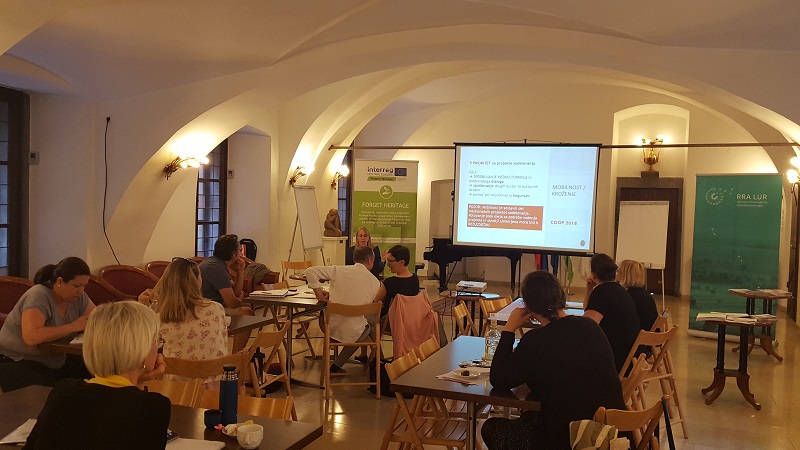News
PAST FOR FUTURE: Challenges and opportunities of the EU funding for cultural heritage
Motovila held a training session on EU funding in Ljubljana, 7 June 2018.
Regional Development Agency of the Ljubljana Urban Region (RRA LUR) and Institute for Economic Research (IER) organised a series of free training sessions in Ljubljana in June 2018. The Training programme was prepared in cooperation with Institute Culturemaker, City of Ljubljana and International Centre of Graphic Arts (MGLC).
A free training programme dedicated to (future) managers of cultural heritage sites included seven different sessions focusing on the following topics: How to properly renovate and revitalize abandoned cultural heritage buildings? How to design a programme so that the past can come to life in symbiosis with the current content of the cultural and creative sector? How to obtain funding for the renovation and the programme, and how to attract the audience?
The latter was covered by a training session implemented by the Motovila team (Mateja Lazar and Maša Ekar). The training entitled “Past for future: challenges and opportunities of EU financing of cultural heritage” took place at the Municipality of Ljubljana on 7 June 2018.
The four-part training session was comprised of presentations and a practical workshop:
1. EU funding basics: the political framework (Why does Europe finance culture?); types of financial mechanisms/EU programmes.
2. EU programmes suitable for financing activities in the field of cultural heritage: short presentations of concrete EU programmes.
3. Focus: Creative Europe and cultural heritage – international collaboration in the field of conservation, promotion and amelioration of cultural heritage.
4. Workshop: from idea to an effective project (using the “Impact+” matrix).
13 participants of various profiles interested in the field of revitalization of cultural heritage attended the training (representatives of municipalities, development agencies, public institutions, private organizations and self-employed).
More about the training program.
The training series was part of the “Forget Heritage project: Collaborative models for the management of abandoned historical sites” co-financed by the INTERREG Central Europe program.
